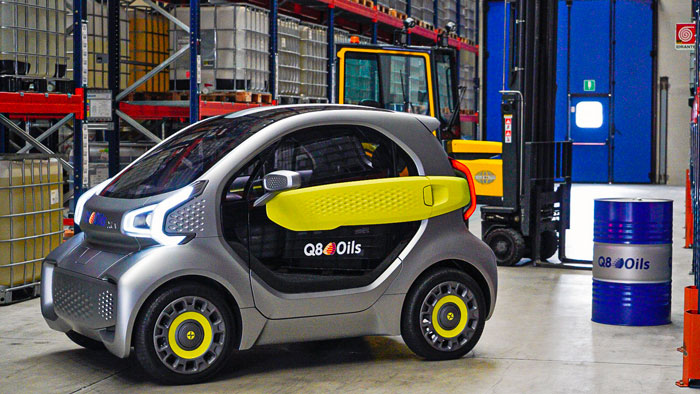
Q8Oils and XEV team up for sustainable 3D printed electrical car
Q8Oils has recently signed a commercial and marketing agreement with XEV, which produces 3D printed electric vehicles. Q8Oils is part of Kuwait Petroleum Corporation (KPC), which is ranked as the world’s seventh largest oil company.
“Innovation has always been in the heart of Q8Oils’ activities. In everything we do, we aim to find innovative solutions for common challenges. Therefore, we are happy to announce that we have recently signed a commercial and marketing agreement with the company XEV in Italy,” Q8Oils said in a statement.
With this new collaboration, Q8Oils and XEV will be able to benefit in both commercial and marketing activities. In all XEV electric cars registered in Italy, XEV will recommend Q8Oils lubricants in its car maintenance booklet.
“The mission of XEV is to reduce waste of materials, time and money created by traditional manufacturing. That is what makes them the perfect partner for Q8Oils’ sustainability mission. This agreement shows Q8Oils’ continuous efforts to remain one of the most innovative lubricants companies,” Q8Oils said in a statement.
XEV, which combines additive manufacturing and intelligent urban mobility, has developed industrial 3D printing technologies and processes for automotive mass production. 3D printing eliminates the need for model specific tooling and allows virtually limitless personalization. This new tooling-less manufacturing process reduces cost and development time by up to 90%. XEV urban electric vehicles combine a flexible modular chassis, beautifully designed 3D printed interior and exterior panels together with a comfortable, easy to use driving experience. The style of the vehicle can be updated and changed easily for the cost of an iPhone upgrade.
The goal of XEV is to capitalize on the benefits of Industry 4.0 in order to reach zero manufacturing waste, zero cost of customization, maximize the use of smart data and provide ultimate customer experience.
Traditional car production methods typically involve large, complicated molds and tools that are not only expensive, but also part-specific. The 3D printing production line of XEV virtually eliminates the need for such limited and resource intensive tooling, resulting in a flexible and efficient manufacturing process. Because of a pre-designed, standarized chassis, the 3D pieces can be modified and changed with significantly less re-engineering.
In general the 3D printing technology allows for fewer components, faster technical updates and significantly reduced production cycles. It also dramatically reduces production cost; therefore the savings can be passed on to end consumers.









